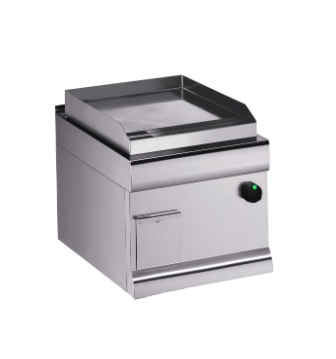In the catering industry, having the right equipment is essential for delivering top-quality food and providing efficient service. Whether you're starting a new catering business or looking to upgrade your existing equipment, selecting the right catering equipment is a crucial decision. This article will provide valuable tips to help you choose the essential catering equipment that aligns with your small business's needs and budget.
Assess Your Menu and Services
Before investing in catering equipment, assess your menu and your services. Consider the nature of your business, such as whether you focus on buffets, sit-down meals, or off-site catering. Determine the types of food you prepare, the volume of customers you serve, and the specific equipment required for your menu items. This assessment will help you prioritize the essential equipment needed for your operations.
Determine Your Space and Capacity
Evaluate the available space in your commercial kitchen or catering facility. Consider the layout, storage capacity, and counter space available for equipment. Please consider the size and dimensions of the equipment you are considering and ensure that it fits seamlessly into your workspace without causing congestion or hindering workflow. Optimizing space utilization will contribute to an efficient and organized operation.
Quality and Durability
Investing in high-quality catering equipment is essential for long-term reliability and performance. Look for reputable brands and gear known for their durability and craftsmanship. Quality equipment will withstand the demands of a commercial kitchen and ensure consistent results. Read product reviews, seek recommendations from industry professionals, and consider the warranty and after-sales service offered by manufacturers or suppliers.
Energy Efficiency
Energy efficiency is not only environmentally friendly but also helps reduce operational costs. Look for catering equipment with energy-efficient features, such as low power consumption, Energy Star ratings, or advanced insulation technology. Energy-efficient equipment can significantly impact your utility bills in the long run while minimizing your ecological footprint.
Ease of Use and Maintenance
Consider the ease of use and maintenance when selecting catering equipment. Look for user-friendly features, intuitive controls, and equipment that requires minimal training for your staff. Easy-to-clean surfaces and removable parts contribute to efficient maintenance and sanitation. Consider the accessibility of spare parts and the availability of local service technicians for prompt repairs and servicing.
Safety Features
Ensure that the catering equipment you choose prioritizes safety. Look for equipment with built-in safety features, such as temperature control mechanisms, automatic shut-off systems, and sturdy handles or grips. Safety certifications and compliance with industry standards are also important indicators of equipment reliability and adherence to safety protocols.
Budget Considerations
Small businesses often operate on tight budgets, so it's crucial to establish a budget range before purchasing catering equipment. Research different suppliers, compare prices, and consider upfront costs and long-term value. Avoid compromising quality for cost savings, as investing in reliable and durable equipment will save you money in repairs and replacements.
Consider Future Growth
Anticipate your small business's future growth and expansion when selecting catering equipment. Choose equipment that can accommodate increasing demand and adjust to changing business needs. This will help you avoid the need for frequent equipment upgrades and ensure that your investment is sustainable in the long run.
Selecting the essential catering equipment for your small business requires careful consideration of menu requirements, space limitations, quality, energy efficiency, ease of use, safety features, and budget constraints. You can make informed decisions that align with your business goals by assessing your specific needs, conducting thorough research, and seeking recommendations from industry professionals.


No comments yet